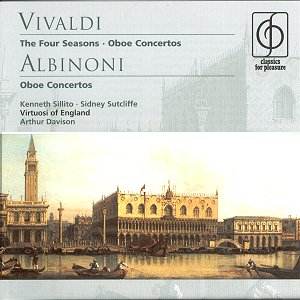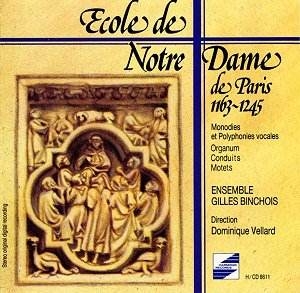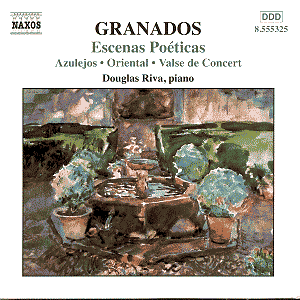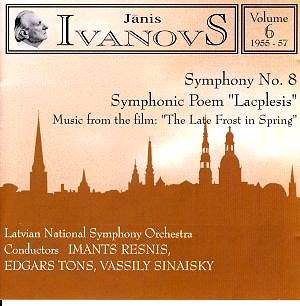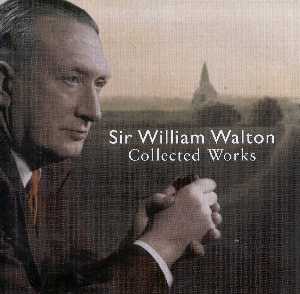 Composer: Sir William Walton (1902-1983)
Composer: Sir William Walton (1902-1983)
Works: Symphony No 1 in B flat minor, Concerto for Violin and Orchestra in B minor, Concerto for Cello and Orchestra, Concerto for Viola and Orchestra in A minor, Sinfonia Concertante for orchestra with piano obbligato (original 1927 version)
Performers: London Symphony Orchestra conducted by André Previn (Symphony No 1), Jascha Heifetz (violin), Philharmonia Orchestra conducted by Sir William Walton (Violin Concerto), Gregor Piatigorsky (cello), Boston Symphony Orchestra conducted by Charles Munch (Cello Concerto), Yuri Bashmet (viola), London Symphony Orchestra conducted by André Previn (Viola Concerto), Kathryn Stott (piano), Royal Philharmonic Orchestra conducted by Vernon Handley (Sinfonia Concertante)
Recording: BMG RCA 74321 92575 2
Label: DECCA
The centenary of Sir William Walton’s birth provides a timely opportunity to reassess his contributions to the 20th-century music canon, a discourse invigorated by this two-CD collection from DECCA. The selected works—ranging from his First Symphony to various concertos—assert Walton’s standing as one of the most distinctive and original voices in British music. This compilation not only encapsulates his stylistic evolution but also showcases the prowess of eminent soloists and conductors who have championed his music, offering listeners both an introduction and a deep dive into Walton’s rich oeuvre.
The First Symphony, recorded in 1966 under the baton of André Previn, emerges as a remarkable testament to Walton’s compositional mastery. Previn’s interpretation stands out for its kinetic energy and precision, particularly in the first movement, which pulsates with an electric liveliness that is unparalleled. The London Symphony Orchestra responds with an impeccable blend of power and finesse. The brass section, in particular, exhibits a brilliance that elevates the symphonic climaxes to shattering heights. The scherzo, marked “con malizia,” is executed with an exhilarating ferocity that reveals both the rhythmic complexity of Walton’s writing and the orchestra’s technical prowess. The slow movement transitions from a state of profound melancholy to a heart-wrenching climax, where the strings’ intensity is breathtakingly palpable. Previn navigates this emotional terrain with an expert hand, making a compelling case for the symphony as a cohesive and significant work rather than an uneven collection of movements.
The Violin Concerto, performed by Jascha Heifetz and conducted by Walton himself, is another highlight of this collection. Heifetz’s crystalline tone and virtuosic command are on full display, particularly in the lyrical passages that characterize the work. The emotional depth that Heifetz brings to the Neapolitan scherzo is particularly striking, offering a contrast to the more aggressive outer sections. The 1950 recording benefits from both the soloist’s intuitive grasp of the concerto’s lyrical spirit and Walton’s own interpretative insights. The clarity of the mono recording from this period is impressive, allowing listeners to appreciate every nuance of Heifetz’s performance.
Walton’s Cello Concerto, featuring Gregor Piatigorsky, is another masterclass in interpretation and execution. Recorded in 1957, Piatigorsky’s rich, resonant tone captures the concerto’s romantic essence. His performance is imbued with a sense of occasion, and the chemistry with Munch and the Boston Symphony Orchestra is palpable. The balance of the recording, while slightly boxy, does not detract from the emotional weight of Piatigorsky’s playing, which is both technically assured and deeply expressive.
Yuri Bashmet’s interpretation of the Viola Concerto is a revelation, presenting a fresh perspective on this earlier work. The richness of Bashmet’s tone and his exceptional control of dynamics illuminate Walton’s intricate textures with a clarity that is both poetic and precise. The LSO, under Previn’s direction, provides a lush backdrop that enhances the soloist’s performance, particularly in the lyrical passages where Bashmet’s emotional range comes to the forefront. This recording stands out as one of the finest interpretations of the work, equaling its predecessors while offering a new level of sensitivity.
The collection’s final offering, the original version of the Sinfonia Concertante, may not possess the same immediate recognition as Walton’s concertos but is a fascinating exploration of his stylistic development. Kathryn Stott’s vibrant piano playing, coupled with Handley’s committed conducting, brings to life a work that showcases Walton’s early orchestral prowess. While the thematic material may not be as memorable as in his later works, the performance captures the exuberance and wit that permeate the piece, demonstrating Walton’s early ambition and creativity.
This comprehensive collection serves as an essential testament to Walton’s artistry, and each performance encapsulates the strengths of its respective era. The remastered sound quality breathes new life into these recordings, making them feel contemporary while honoring their historical significance. Walton’s music, often mischaracterized as inconsistent, reveals itself here as deeply rewarding, deserving of a prominent place in the concert repertoire. For both newcomers and longtime aficionados of Walton’s work, this collection stands as a vital and compelling tribute to a composer whose music continues to resonate well beyond his time.
